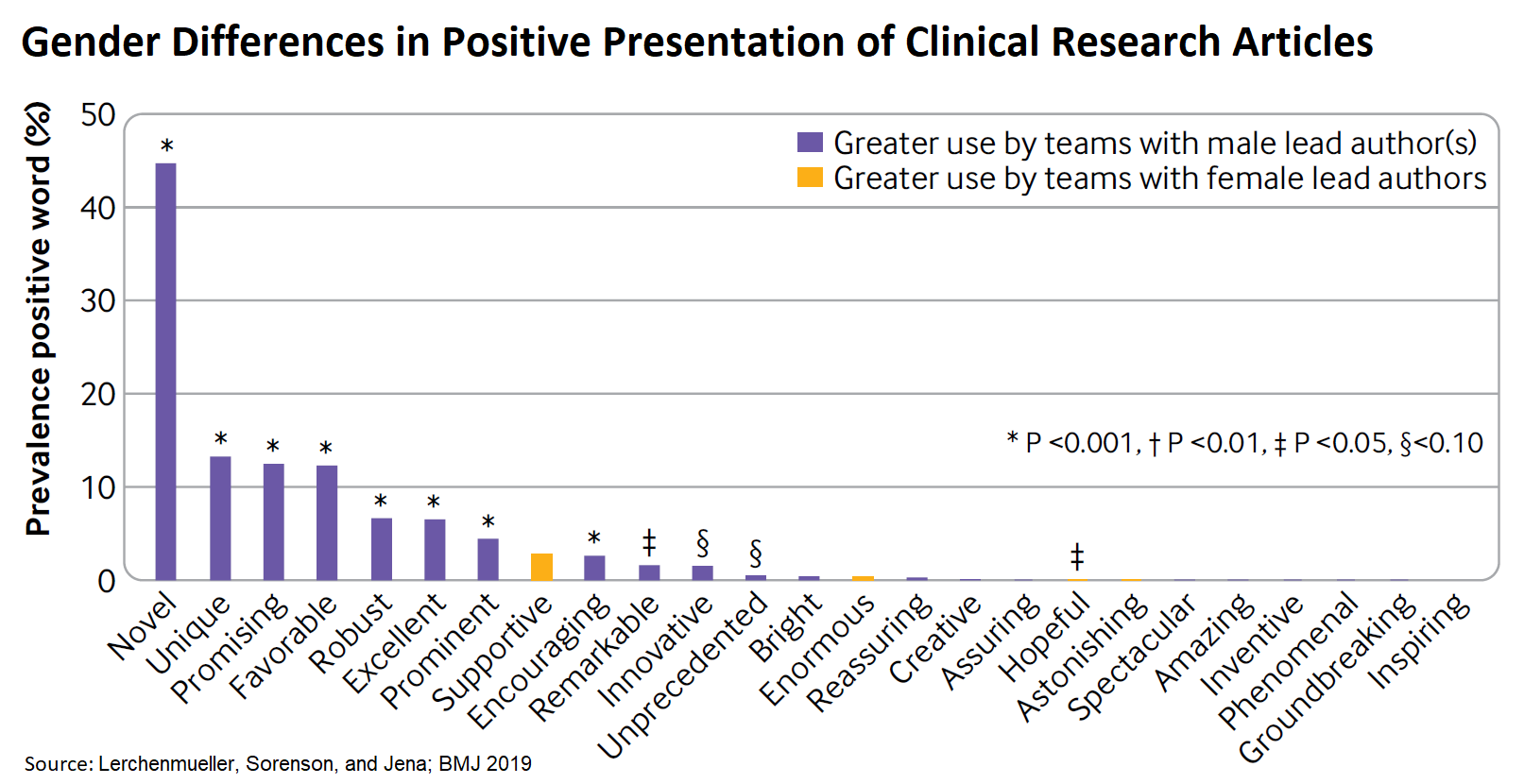
Scientific Excellence Is a Male Thing, Apparently
 Apparently, “excellence” in scientific research is a male thing. So, too, is novelty. And let’s not forget uniqueness or promise either. A new study published in the BMJ tells us that male authors are much more likely to use these superlatives in the research papers they author. Female authors, not so much.
Apparently, “excellence” in scientific research is a male thing. So, too, is novelty. And let’s not forget uniqueness or promise either. A new study published in the BMJ tells us that male authors are much more likely to use these superlatives in the research papers they author. Female authors, not so much.
“Supportive” was the lone superlative that was more common in papers with female lead authors. But in that case, the difference was not significant.
Puffery, Spin, and Academic Careers
This study is both fascinating and important to us. Spin and puffery have corrosive effects on scientific rigor. Puffing up an observational study of correlations in obesity and nutrition research is something we see on a regular basis. Consider the endless parade of studies, for instance, with redundant observations that link diet drink consumption to obesity or its complications. They serve only to build a bias of familiarity. And yet, authors find ways to spin their results as important. “The largest study to date,” said the authors of one such recent paper.
Nonetheless, such spin can have an effect on publications and on academic careers. In an editorial alongside the new BMJ study, Reshma Jagsi and Julie Silver explain:
The robust body of literature on gender related (a) implicit (unconscious) bias and (b) disparities in publishing suggest we should consider the many different ways that women are told by editors, reviewers, and copy editors that their work is “not quite good enough” as originally drafted.
Michelle Cardel tells us that this has serious implications for gender equity in academic careers:
These data highlight how male and female scientists differentially praise their own research and emphasize its importance and innovation. When combined with other systemic and pervasive factors leading to gender inequities, it becomes clear how this can affect trajectories and success within an academic career.
Objectivity and Scientific Excellence
The problem is clear. Spin and puffery creep into the literature because of norms that favor such behavior. Those are also norms that contribute to gender disparities. They undermine objectivity and the single-minded pursuit of real knowledge. Jagsi and Silver are exactly right when they say “we must fix the systems that support gender disparities.”
These disparities get in the way of scientific excellence.
Click here for the study and here for the editorial. For further perspective, click here and here.
Peacock and Plumage Portrait, photograph © Charles Patrick Ewing / flickr
Subscribe by email to follow the accumulating evidence and observations that shape our view of health, obesity, and policy.
December 18, 2019
